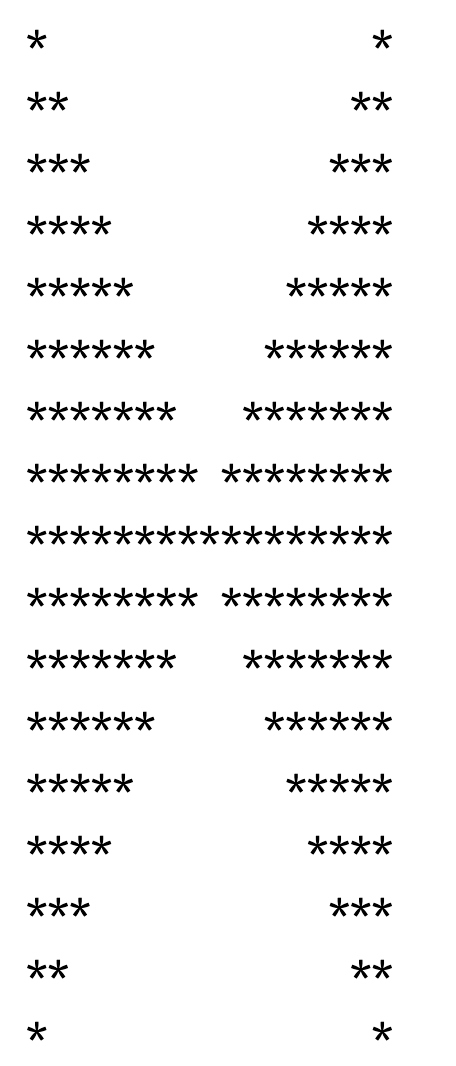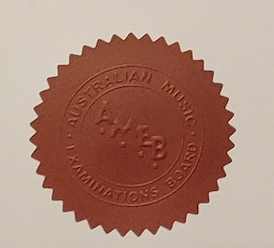Code to draw a Big H with all stars
Coding is everything! Code Now!
Background & symptoms
You like letter H ? (?? why I like H??). Anyway, for whatever reasons (to show off, for exam, code test, etc), you need to draw a big H, or two triangles which point to each other. Here is the code for your quick reference:
Output preview

Designing planing
For pattern code test, here are some golden tips
- Normally you’d use two pointers, one for
rowanother forcolumns, then compare their relationship to determine whether to output or not TDDis highly recommended to test boundary case and edge case
Full source code
import java.util.Arrays;
import java.util.Scanner;
public class Pattern {
public static void main(String[] args) {
System.out.println("please input a character for display");
Scanner scanner = new Scanner(System.in);
String pattern = scanner.nextLine();
if (pattern == null || pattern.isEmpty()) {
System.out.println("Invalid input pattern");
System.exit(1);
}
char ptn = pattern.trim().charAt(0);
System.out.println("please input levels (number smaller than 100)");
int level = scanner.nextInt();
if ( level > 100) {
System.out.println("Invalid input for level");
System.exit(1);
}
char[][] chars = drawPattern(ptn, level);
print2DArrays(chars);
}
private static void print2DArrays(char[][] chars) {
int row = chars.length;
for (int i = 0; i < row; i++) {
int col = chars[i].length;
for (int j = 0; j < col; j++) {
System.out.print(chars[i][j]);
}
System.out.println();
}
}
private static char[][] drawPattern(char ptn, int level) {
int len = 2 * level;
int oppNum = 2 * level - 2;
char[][] pattern = new char[len - 1][len - 1];
for (int i = 0; i < len - 1; i++) {
for (int j = 0; j < len - 1; j++) {
pattern[i][j] = ' ';
if (i < level) {
if (j <= i || j >= (oppNum - i)) {
pattern[i][j] = ptn;
}
} else {
if (j <= (oppNum - i) || j >= i) {
pattern[i][j] = ptn;
}
}
}
}
return pattern;
}
}
Code explanation!
Above code is quite self-explanation. However here are some quick note-worthy points:
- You can enter whatever patterns you want to form this big H (not only star)
- Essentially this is using two pointers representing row anc column, then compare their relationship to determine whether to print out or not.
–End–

